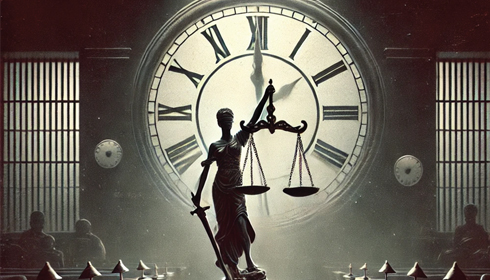
Junior doctors call off hunger strike; protests to continue
The striking junior doctors of Bengal has announced to end their extended hunger strike following conversations with chief Minister Mamata Banerjee and other government officials and impassioned appeals from the parents of Abhaya, who was found brutally raped and murdered at RG Kar Medical College and Hosptal on August 9, 2024 is a watershed moment in the continuing protest. The doctors, who had embarked on fast unto death since October 5 with a list of demands aimed at reforming the healthcare system, have stated their intention to alter the emphasis of their movement, with a large rally set for Saturday at R.G. Kar Medical College.
The incident sparked huge protests from doctors and were joined by people from all walks of life has garnered a substantial national and international attention to the issue of women’s safety, especially at workplace in India. The hunger strike, which included doctors from many prestigious medical colleges such as Kolkata Medical College, R.G. Kar Medical College, and North Bengal Medical College. The striking doctors are demanding immediate justice for the victim, as well as a number of structural changes to the healthcare system. Their demands included maintaining administrative transparency, combating corruption, and improving security for healthcare workers as well as patients across the state's medical institutions.
Despite the end of the hunger strike, the junior doctors have stated that their decision was motivated not by government request or coercion but by requests from the victim's parents, who begged them to reconsider their way of protesting. Junior doctor Rumelika Kumar made an emotional statement, asserting that the government did not request this decision. “We are suspending the hunger strike in the interests of Abhaya's parents and the broader public interest." This suggests that, while the strike may have ended for the time being, the push for healthcare reform is still underway.
The suspension of the strike coincided with the cancellation of a planned statewide healthcare strike from Tuesday. The original plan for this strike was to highlight the urgent need for systemic change in the healthcare industry. However, the decision to cancel it suggests a strategic shift by the protesting doctors to rethink their approach, most likely in response to both internal and external feedbacks on the way the protests have been progressing so far.
Calling off the hunger strike has strategic relevance because of its timing and the movement's overall goals. While the government attempted to interact with the striking doctors, the discussions did not satisfy the demonstrators. As a junior doctor Arnab Mukherjee noted, "During the meeting, we witnessed the suppression of medical institution representatives." The government's body language was not positive." This suggests that despite a two-hour discussion at Nabanna (the state secretariat) to address numerous crucial concerns, mistrust between the medical community and state authorities persists. Mukherjee continued by stating that if the pace of justice slows down, they are keeping the option of returning to hunger strike.
The doctors have stated that their greater struggle is about systemic healthcare issues, not just Abhaya. Their list of ten demands reflects this commitment to long-term reform, which includes addressing corruption in the West Bengal Medical Council and the Health Recruitment Board, improving hospital referral systems, ensuring adequate staffing, and increasing security by deploying police personnel rather than contract workers .
Among the most pressing requests are the increased involvement of junior doctors on institutional committees and the implementation of a transparent system for hospital bed availability, including the installation of digital monitors to alert patients and staff to bed occupancy. Furthermore, the doctors are advocating for a democratic climate in medical institutions, including student union elections and institutional recognition of resident doctors' unions.
The doctors' ability to transition from a hunger strike to mass mobilization demonstrates their strategic adaptability. They are most likely hoping to consolidate popular support and put pressure on the government to take action by organizing a large-scale rally. We expect the rally at R.G. Kar Medical College on Saturday to attract significant attention, potentially initiating a new phase of the campaign. Junior doctor Debashis Haldar stated, "We are thinking about the people, and we will continue to worry about them. That is why we are calling for this massive demonstration.”
Despite the peaceful end to the hunger strike, doctors are cautious of the government's response. The restrictions imposed on their protest during the meeting with government officials, including the prohibition of displaying badges with the phrase "We Want Justice," disappointed them. Their disagreement with the government's handling of the problem demonstrates the extent of the trust gap between the medical community and state officials.
The decision to halt the hunger strike appears to be a compromise, but it is actually a premeditated maneuver by the junior doctors to change their tactics. By shifting from an indefinite strike to a more broad-based public action, they want to maintain pressure on the government while gathering public support for their cause. The doctors' emphasis on justice for Abhaya and structural reform in the healthcare sector keeps the topic on the public agenda, even as they take a temporary break from their most militant form of protest. The following weeks, particularly the planned mass assembly, will be critical in defining the movement's future direction.